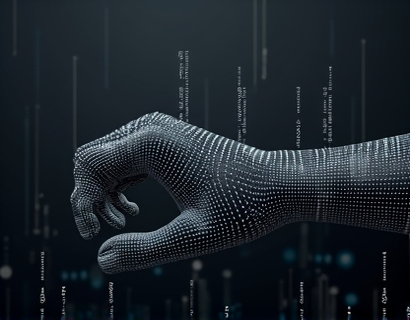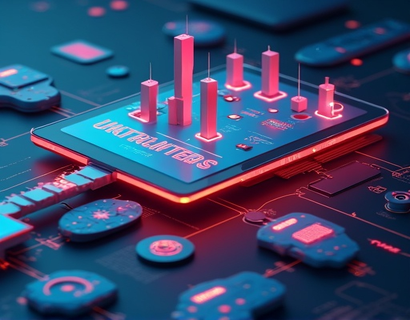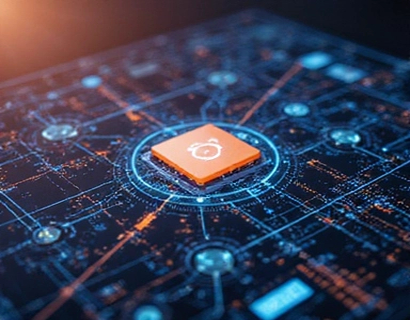Revolutionizing App Ecosystems: The Synergy of Crypto and AI
The integration of cryptocurrency and artificial intelligence is ushering in a new era of digital transformation, fundamentally altering the landscape of app ecosystems. This convergence is not just a technological curiosity but a powerful force driving innovation and enhancing user experiences. As tech-savvy innovators and early adopters, understanding the dynamics of this synergy is crucial for staying ahead in the rapidly evolving digital world.
The intersection of cryptocurrency and AI offers a unique opportunity to create more secure, efficient, and personalized digital solutions. Cryptocurrency, with its decentralized and transparent nature, provides a robust foundation for building trust and ensuring security in transactions. Meanwhile, AI's capabilities in data analysis, pattern recognition, and predictive modeling can significantly enhance the functionality and user experience of applications.
Enhanced Security Through Cryptocurrency
One of the most significant benefits of integrating cryptocurrency into app ecosystems is the enhancement of security. Traditional app ecosystems often rely on centralized servers, making them vulnerable to hacking and data breaches. Cryptocurrency, particularly through the use of blockchain technology, offers a decentralized approach that distributes data across a network of nodes, reducing the risk of a single point of failure.
Blockchain's inherent transparency and immutability ensure that transactions are secure and tamper-proof. Smart contracts, self-executing contracts with the terms directly written into code, further automate and secure interactions within the app ecosystem. This not only protects user data but also builds trust among users, encouraging greater adoption of digital solutions.
AI-Driven Personalization
AI plays a pivotal role in personalizing user experiences within app ecosystems. By leveraging machine learning algorithms, apps can analyze vast amounts of user data to understand preferences, behaviors, and needs. This data-driven approach enables the creation of tailored recommendations, customized interfaces, and context-aware services that enhance user engagement and satisfaction.
For instance, AI can power chatbots and virtual assistants that provide real-time support and guidance, making interactions more intuitive and efficient. Personalized content delivery, adaptive learning systems, and predictive analytics are just a few examples of how AI can transform the user experience in apps. The combination of AI and cryptocurrency ensures that these personalized services are not only highly relevant but also securely delivered.
Decentralized Applications (DApps)
Decentralized Applications, or DApps, represent a groundbreaking application of the crypto-AI synergy. DApps operate on blockchain networks, leveraging the decentralized nature of cryptocurrency to create applications that are resistant to censorship and control by any single entity. This decentralization empowers users by giving them greater control over their data and interactions.
AI enhances DApps by providing intelligent and adaptive functionalities. For example, AI can optimize resource allocation, improve user interface design, and enhance security measures within DApps. The synergy between decentralization and AI ensures that DApps are not only secure and transparent but also highly functional and user-friendly.
Use Cases of DApps
Several industries are already benefiting from DApps powered by the crypto-AI combination. In finance, decentralized finance (DeFi) platforms offer lending, borrowing, and trading services without intermediaries, thanks to AI-driven risk assessment and automated execution. In healthcare, DApps can securely manage patient data and enable personalized treatment plans through AI analytics. The gaming industry is another area where DApps, enhanced by AI, create immersive and fair gaming experiences with dynamic content generation and reward systems.
Efficient Supply Chain Management
Supply chain management is another domain where the integration of cryptocurrency and AI is making a significant impact. Traditional supply chains are often plagued by inefficiencies, lack of transparency, and high costs. By using blockchain to track and verify transactions, and AI to optimize logistics and demand forecasting, companies can achieve greater efficiency and reliability.
Cryptocurrency ensures secure and transparent transactions at every step of the supply chain, from production to delivery. AI algorithms can analyze real-time data to predict demand, optimize inventory levels, and identify potential bottlenecks. This combination not only reduces costs but also enhances the overall customer experience by ensuring products are delivered on time and in the right condition.
Enhanced Identity Verification
Identity verification is a critical aspect of many digital services, and the crypto-AI synergy offers innovative solutions to this challenge. Traditional identity verification methods are often centralized, vulnerable to fraud, and invasive. Blockchain-based identity systems, combined with AI-driven biometric verification, provide a secure and user-friendly approach to identity management.
Users can control their identity data through self-sovereign identity (SSI) frameworks, where they own and manage their digital identities. AI enhances this process by accurately verifying identities through facial recognition, voice recognition, and other biometric data. This not only improves security but also streamlines the user onboarding process, reducing friction and enhancing trust.
Challenges and Considerations
While the potential of combining cryptocurrency and AI is vast, there are several challenges and considerations to keep in mind. Regulatory uncertainty remains a significant hurdle, as governments worldwide are still grappling with how to regulate these emerging technologies. Compliance with data protection laws, such as GDPR, is essential to ensure user privacy and trust.
Technical complexity is another factor to consider. Integrating blockchain and AI requires specialized knowledge and resources. Developers and organizations must invest in building a skilled team capable of navigating these technologies effectively. Additionally, scalability and interoperability are crucial for widespread adoption, as current blockchain networks often face limitations in transaction speed and compatibility with other systems.
Future Prospects
The future of app ecosystems with the integration of cryptocurrency and AI looks promising. As technology advances and regulatory frameworks evolve, we can expect more seamless and widespread adoption. The convergence of these technologies will continue to drive innovation, leading to more secure, efficient, and personalized digital experiences.
For tech professionals and early adopters, staying informed about the latest developments in this space is essential. Exploring platforms and services that leverage the crypto-AI synergy can provide valuable insights and opportunities. The potential for creating transformative digital solutions is immense, and those who embrace this synergy will be at the forefront of the next technological revolution.










































